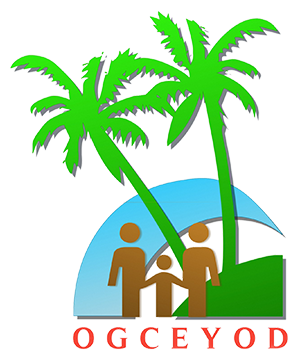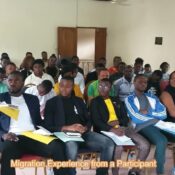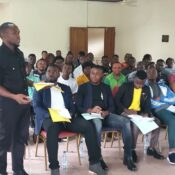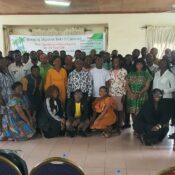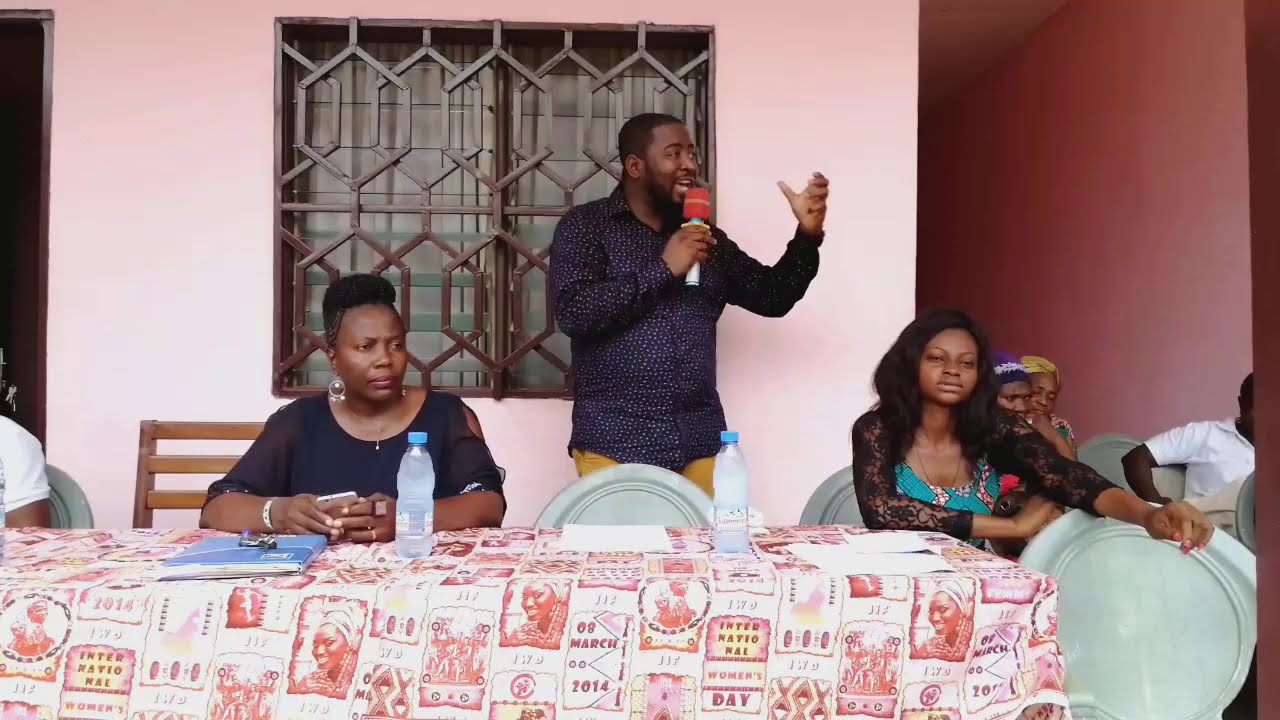
OGCEYOD Cameroon: International Day of the Woman 2020 Pt 2
Organisation for Gender, Civic Engagement and Youth Development (OGCEYOD)
P.O. Box 467, Limbe
South West Region, Cameroon
Tel: (+237)674215497
Email: ogceyod@yahoo.com , projects@ogceyod.org
Website: www.ogceyod.com
THEME: PROMOTING GENDER EQUALITY AND PROTECTING WOMEN’S RIGHTS BY 2020; TAKING STOCK OF ACTIONS UNDERTAKEN, SETTING A NEW COURSE.
CHALLENGES OF PROTECTING WOMEN’S RIGHTS.
Though much progress has been made in securing women’s rights across the world in recent decades, important gaps still remain and women’s realities are constantly changing, with new manifestations of discrimination against them regularly emerging. Some groups of women face additional forms of discrimination based on their age, ethnicity, nationality, religion, health status, marital status, education, disability and socioeconomic status, among other grounds. These intersecting forms of discrimination must be taken into account when developing measures and responses to combat discrimination against women.
Furthermore, reviews of the implementation of the Beijing Declaration and Platform for Action have revealed that although significant progress has been made in some areas of women’s human rights, “discriminatory legislation as well as harmful traditional and customary practices and negative stereotyping of women and men still persist” particularly in family, civil, penal, labour and commercial laws or codes, or administrative rules and regulations. Both the 2005 and the 2010 reviews of the Platform concluded that de jure and de facto equality had not been achieved in any country in the world and the 2010 review recognized that even where legal reforms had taken place, they were often ineffectively enforced.
The right to education is recognized in the International Covenant on Economic, Social and Cultural Rights (art. 13), the Convention on the Rights of the Child (art. 28), the Convention on the Elimination of All Forms of Discrimination against Women (art. 10) and the Convention on the Rights of Persons with Disabilities (art. 24). Besides calling for non-discrimination in the enjoyment of the right to education and free universal primary education, human rights law also requires States to address the particular obstacles that girls and women face in accessing education, such as early marriages, pregnancies, child labour and violence. The needs of girls suffering from multiple forms of discrimination for instance girls with disabilities, from poor or rural areas and belonging to minority communities—should also be considered. Thus, ensuring equality in education requires financial resources as well as continued awareness-raising about the importance of girls’ education.
The right to equality between men and women in marriage and family life is also recognized in various human rights instruments. Women nevertheless lag behind men in the enjoyment of rights related to the private sphere. In many countries and Cameroon respectively, women are forced to enter marriage, they do not enjoy the same rights with regard to guardianship and adoption, they are not allowed to transfer their nationality to their children and husbands, and they do not have equal legal capacity. CEDAW requires State parties to take “all appropriate measures to eliminate discrimination against women in all matters relating to marriage and family relations” (art. 16). This includes ensuring the same right to enter into marriage with free and full consent and to freely choose a spouse, the same rights and responsibilities during marriage and its dissolution and with respect to their children, and the same personal rights as husband and wife, such as the right to choose a family name, a profession and an occupation.
Challenges with respect to Women’s rights in public and political life.
According to the universal declaration of human rights, everyone has the right to take part in the government of his or her country. This is practical in Cameroon as women have the rights to vote in all elections and public referendums and to be eligible for election to all publicly elected bodies, the right to participate in the formulation of government policy and its implementation, to hold public office and perform all public functions at all levels of government. None the less though women’s right to vote has been secured in nearly every country of the world, in practice, the right to vote can sometimes be meaningless. Obstacles such as stereotyping and traditional perceptions of men’s and women’s roles in society, as well as lack of access to relevant information and resources, also inhibit women’s possibilities or willingness to exercise their right to vote fully, also, traditional working patterns of many political parties and government structures continue to be barriers to women’s participation in public life, and women may be discouraged from seeking political office because of their double burden of work and the high cost of seeking and holding public office .
source
Recent Posts
OGCEYOD Cameroon; Managing Migration Risk in Cameroon – Opportunities and Risks in Migration 65 sec
OGCEYOD Cameroon; Managing #Migration Risk in #Cameroon – Opportunities and Risks in Migration
OGCEYOD Cameroon; Opportunities and Risk in Migration (#Managing #Migration Risk in #Cameroon)
There is Always Room to Give
This will put a smile on someone's face.
+237 698 974 201
info@ogceyod.org contact@ogceyod.org

